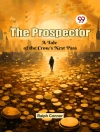In ‘A Little World, ‘ George Manville Fenn captures the intricate tapestry of rural life in Victorian England through a series of vivid vignettes that blend humor and pathos. The novel is set against a backdrop of a tight-knit village community, where the mundane and the extraordinary coexist. Fenn’s literary style is characterized by an arresting use of dialect and rich descriptive passages that breathe life into his characters and settings. The work reflects the thematic preoccupations of the time, revealing societal norms and the tension between tradition and modernity within a rapidly changing world. George Manville Fenn, a prolific author and journalist, was deeply influenced by his own upbringing in a rural environment. His firsthand experiences inform the nuanced portrayal of village life in this novel. Fenn’s background in education and his keen observational skills allowed him to delve into the psychological complexities of his characters, making them resonate on a personal level with readers. His commitment to exploring the human condition shines through, presenting a compelling narrative that addresses both personal struggles and communal dynamics. This book is a must-read for those interested in Victorian literature and the exploration of societal structures. Fenn’s engaging prose and deep empathy for his characters create a poignant reflection on the nuances of everyday life, encouraging readers to appreciate the beauty and complexity of their own ‘little worlds.’
Об авторе
George Manville Fenn (1831–1909) was an English writer and educator well-known for his adventure fiction aimed at young readers. With an oeuvre that reveals an enigmatic capacity to imbue his tales with the ethos of his time, Fenn was a prolific author, penning over a hundred novels. Among these is ‘A Little World, ‘ which typifies his narrative flair and mastery in creating engrossing worlds full of intrigue and exploration. Often drawing from his early career as a teacher, Fenn’s literary style is marked by an ability to craft educational yet entertaining stories, underpinned by authentic lessons in camaraderie and moral fortitude. His works are characterized by a deep understanding of young minds and their yearning for discovery, a theme that resonates through his robust body of literature. While lesser-known compared to contemporaries like Thomas Hardy or H.G. Wells, Fenn’s influence on juvenile fiction is undeniable, offering a canon of literary adventures that have captivated readers for generations. Fenn’s commitment to blending excitement with educational values makes his works enduring artifacts of 19th-century literature, although scholarly engagement with his texts remains nascent.












